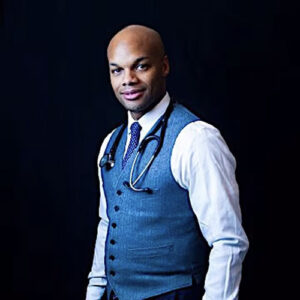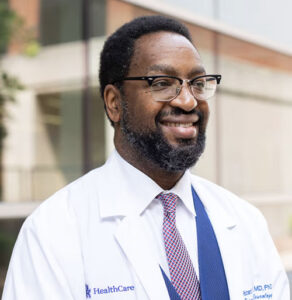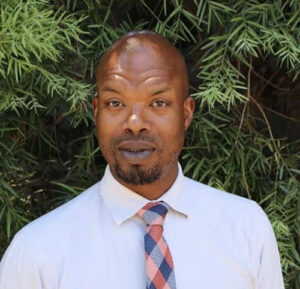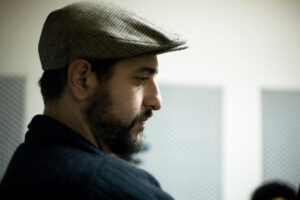 This a wake-up call for Black people who are part of the diaspora as well as for Africans who still live on the African continent.
This a wake-up call for Black people who are part of the diaspora as well as for Africans who still live on the African continent.
Both groups have been directly affected by the attributes of colonial oppression including high processed foods, poverty, generational trauma, police violence, incarceration, and the violent social challenges that we as a people have experienced for centuries.
These are just a few of the reasons that we are dying early, and these same reasons give testimony to what must be done NOW!!
~Hitaji Aziz
Neurologists say accelerated brain aging in Black people can be countered by lifestyle changes
By Curtis Bunn, NBC News. This article first appeared on NBCNews.com on December 2, 2022.
Black physicians are fascinated but not surprised by recent data that suggests Black people’s brains are likely to age faster than those of other races due to stressors such as racism. However, doctors said lifestyle changes and preventative care could help slow some of the decline.
In a study published last month in the journal JAMA Neurology, researchers from Columbia University found racial and ethnic disparities in brain markers of Alzheimer’s disease and related cases of dementia. The scientists analyzed MRI scans of nearly 1,500 participants, and found that Black adults in their mid-50s were more likely than white or Hispanic adults of the same age group to show white-matter lesions in their brains, which are indicators of cerebrovascular disease or cognitive decline.
The authors noted that “social forces” may have played a part in the accelerated brain aging seen among their Black subjects. In particular, the study says the weathering hypothesis — which states that “chronic exposure to social and economic disadvantage leads to accelerated decline in physical health outcomes”— could cause Black middle-aged adults on average to have cerebrovascular disease earlier in life.
JAMA Neurology did not immediately respond to request for interview.

Dr. Philippe Douyon, a neurologist in New Jersey at the Inle Brain Fit Institute who hosts The Brain Prophets Podcast, said he’s concerned that some may interpret the study to mean that Black people are naturally predisposed to Alzheimer’s. “That’s not the case at all. A lot of things contribute to dementia and Alzheimer’s, like high blood pressure and diabetes. Also, chronic stress kills neurons or brain cells in the part of the brain responsible for making new memories,” Douyon said.
He also noted that chronic stress as a result “of racism or health inequalities due to racism” can raise someone’s risk of developing cognitive disease. “But I would not want people to think that it has anything to do with the fact that the color of their skin is black,” he said.
Dr. Richard D. King, a neurologist and associate professor at the University of Kentucky College of Medicine, said many people who experience a deterioration in brain function do not realize there’s a problem until there’s been “quite a bit of decline.”
He added that stress can exacerbate hypertension, which can make a person more prone to cognitive decline.

“Elevated blood pressure is a very strong risk factor for worsening cerebrovascular disease,” King said. “But two people might respond to the exact same stress in very different ways. It’s a difficult thing to measure on an individual basis.”
Donald Grant, a psychologist and the executive director of Mindful Training Solutions, a firm that designs diversity, equity and inclusion programs for businesses, said the stress of being Black in America can wear on the brain.
“We’re talking about Black folks experiencing these higher degrees of racialized stress, meaning we’re watching ourselves being murdered through racism, we’re watching ourselves not get jobs because of racism,” Grant said. “We’re watching ourselves not get housing and equal opportunities through racism. That creates a unique stress that nobody else experiences and our brains are being impacted by it.”
Minimizing the risk
Douyon said there are many ways to slow brain aging, including maintaining a healthy diet and getting proper rest.
“You can minimize your risk of dementia by eating healthy — more fruits and grains and vegetables and less animal fats and sweets in moderation,” he said. “You need to make sure you’re getting six to eight hours of sleep every night.”
Douyon said sleep deprivation in someone’s mid-life years — 20s through 50s — can raise the risk of dementia in their 60s, 70s or 80s. He said it’s important to not only get sleep, but deep sleep, known as non-rapid eye movement (NREM) sleep.
“That’s when the brain essentially clears out the toxins that are developing throughout the day. And when these toxins build up, they develop into plaques and those are the kind of plaques that we see in people with Alzheimer’s,” he said.
King added that it’s also important to keep the mind and body active.
“Exercise is a big one,” he said, “and that’s something that we’re actually pretty good at least until we get older, when we get kind of lazy. But physical activity is my best anti-aging formula.” He recommends spending 30 minutes per day doing “something that’s kind of vigorous and gets your heart rate up — gets you a little sweaty.”
King and Douyon also suggested playing board games, solving puzzles and reading as ways to exercise the brain.
“Learning a new hobby makes a big difference,” King said. “And then staying socially active. Keeping those connections with family with friends, with church and social organizations provide meaningful interaction. If you get isolated, you just don’t do as well as those that maintain those connections.”
In addition, Grant thinks it’s equally important to find ways to manage stress.
One option is through activities like restorative yoga, which Grant said can help address stress and regulate blood pressure and brain function.

“Racism creates a unique stress that nobody else experiences,” he said. “We have to begin building stress relief techniques in school that specifically speak to race-based stress and trauma. This type of yoga is one of them.”
King noted that “the study certainly suggests that if we were able to do things like close the socioeconomic gaps and provide more opportunities and reduce the number of microaggressions Black people face, you might see some change in that.”
He added that high blood pressure and diabetes, which are prevalent in Black communities, can be managed with proper health care and while both are very common, they are “very treatable.”
“What gets measured, gets managed,” King said. “And so you have to measure it. You have to go to your primary care doctor and check your blood pressure and blood sugar level. And you have to take your medications on a regular basis.”
Douyon said a holistic approach is likely the best way to slow down brain aging.
“You want to constantly be learning, constantly evolving, learning new skills, interacting with different people, learning new languages, traveling the world, having new experiences,” he said. “Being creatures of habit is killing our neurological potential. So, you don’t want to be sedentary — that causes the brain to atrophy and to shrink. These are things that we can do every day to minimize the risk of us developing something like Alzheimer’s.”
Testimonial
 “Blessings to you Hitaji. No matter the cultural difference you are always able to cross it. My time with you today was so healing. A moment that was both familiar and unfamiliar. I know I’ve been sending more feelers for help. And in doing so, I feel like the divine keeps telling me to have faith in my path. That I can lean on my ancestors -a clear sign from today and of recent events in my life- with others who also wish to heal themselves with similar respect to the past and a focus on the present…and to help heal as many others as is possible… Love also is a huge signpost I keep being told should be reinforced in my life. I’ll just look forward to your return and the continuance of next steps.”
“Blessings to you Hitaji. No matter the cultural difference you are always able to cross it. My time with you today was so healing. A moment that was both familiar and unfamiliar. I know I’ve been sending more feelers for help. And in doing so, I feel like the divine keeps telling me to have faith in my path. That I can lean on my ancestors -a clear sign from today and of recent events in my life- with others who also wish to heal themselves with similar respect to the past and a focus on the present…and to help heal as many others as is possible… Love also is a huge signpost I keep being told should be reinforced in my life. I’ll just look forward to your return and the continuance of next steps.”
Love and blessings, Jackson



